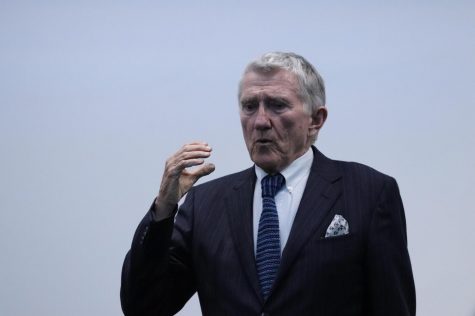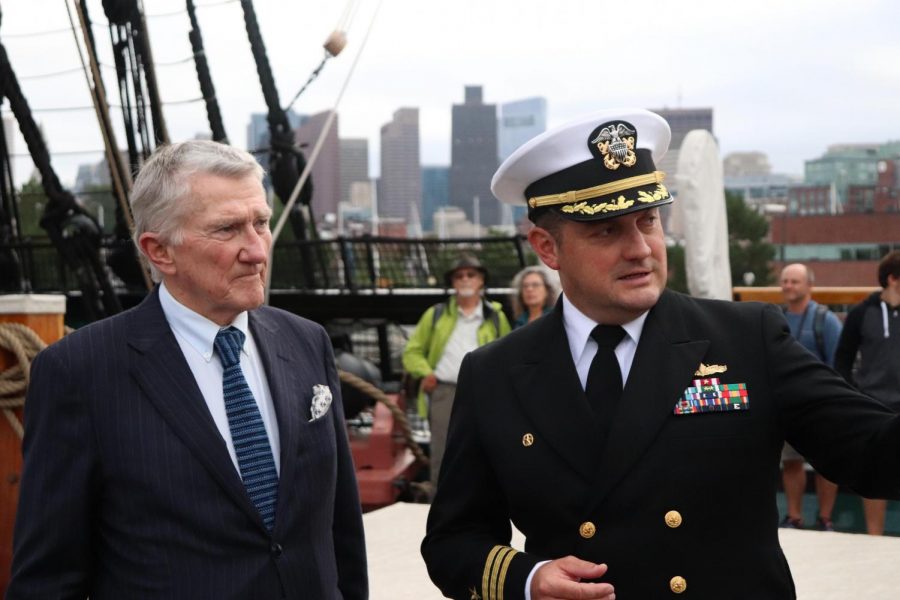The USS Constitution Museum in Charlestown brought former Navy Secretary John Lehman to speak about his career and promote his new book, “Oceans Ventured: Winning the Cold War at Sea,” on Oct. 3.
Lehman served as the 65th Navy secretary, during the Reagan administration. Lehman served during the last decade of the Cold War, from 1981-87.
President Ronald Reagan, who served 1981-1989, was in office during the beginning of the end of the Soviet Union, with the USSR officially dismantling in 1991. Lehman who was 38 when he became Navy secretary, remains the youngest ever to serve in the position.
In his speech to more than 50 former and current members of the Navy along with museum staff and visitors, Lehman explained that toward the end of the Cold War, the United States had cut its military so severely that the Soviet Union was superior militarily.
In turn, the U.S. resorted to trickery to make the Soviets believe the U.S. was stronger than they were.
“How can we make the Soviets think we can do it?” said Lehman, referring to how the U.S. could appear stronger and have more forces than it actually did.
Lehman emphasized that the Cold War was not won simply because of the weakening of the USSR, but also largely in part by the Reagan administration and its actions.

Former Navy Secretary John Lehman
The book describes Reagan’s aggressive policy toward the Soviets. Lehman said during the Reagan administration, the Navy was more provocative in its military exercises along the Soviet border — essentially taunting the Soviets. As a result, Reagan’s Navy was crucial in causing the Soviets to overspend on the military, Lehman said.
He said the the book took much longer to complete than he wanted, noting that the book could have taken around six months to finish. Instead, it took 10 years because much of the information he wanted to use in the book was classified. He said he went to the trouble of getting the information declassifying because “it is a story that is important for people to know.”
After his talk, Lehman took questions from the audience, discussing the challenges the Navy faces today, including North Korea and cyber security. To tie together the then and now, Lehman compared the Axis powers of World War II — Japan, Germany and Italy — to Russia, Iran and North Korea today. He compared them as nations not having common allies “but common adversaries.”
Lehman was brought to the USS Constitution Museum as part of the Leadership Lecture Series, said Museum President and CEO Anne Grimes Rand. Rand said that the museum invites naval and military guests to discuss their job duties.
“Being here in Boston, obviously there’s an interested audience,” said Rand in an interview with The Suffolk Journal. “This evening we have museum members, people who may have had military service in the past who might be interested in this, or business leaders who are interested in sort of the questions of leadership and strategy.”















